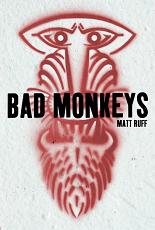It’s been three years since Jean Charles de Menezes was brutally murdered by the Metropolitian Police and still nobody has been punished for it. Commissioner “sir” Ian Blair is still in power, Cressida Dick, the officer in charge of the operation that murdered de Menezes was actually promoted and we still don’t know the names of the police agents that actually shot him. Sure, the Metropolitian Police as a whole was found guilty of his murder last year and had to pay some insultingly low fine for it, but as I noted then we still didn’t know the exact details of what lead to Jean’s murder. One year on, and a new report says we still don’t know:
It finds officers involved are yet to be fully debriefed about the events and says legal constraints, due to the inquest to be held in September, may be partly to blame. But it lambasts senior officers it interviewed for accepting the lack of a full explanation from those under their command.
“We were presented with a paradox during our evidence sessions: on the one hand a recognition that undertaking a comprehensive debrief is important and that lessons need to be learnt, and on the other hand a complacent acceptance that, in this case, it has not happened and is unlikely to in the future.
“The scrutiny panel also wishes to emphasise that it is our perception that the MPS has a cultural predisposition to adopt an overly defensive stance when asked to explain how it is responding to criticism and challenge. It is our view that the MPS needs to counter this tendency energetically.”
After the shooting, firearms officers wrote their accounts together, and presented their notes 36 hours after the shooting. The IPCC contrasted this with civilian witnesses who gave their accounts straight away and without consulting other witnesses. The MPA says officers did nothing wrong, but: “The practice of conferring … is open to misinterpretation.”
Thirtysix hours to get their statements straight? That’s not open to misinterpretation, that’s the police protecting its own. It will be interesting to see how that tendency plays out now Ian Blair has been accused of something even the dullest law ‘n order, trust-the-police freak will admit is a crime. It’s telling of the priorities of British politics if “improper financial dealings” were what finally got Blair sacked instead of the murder of an innocent man.


